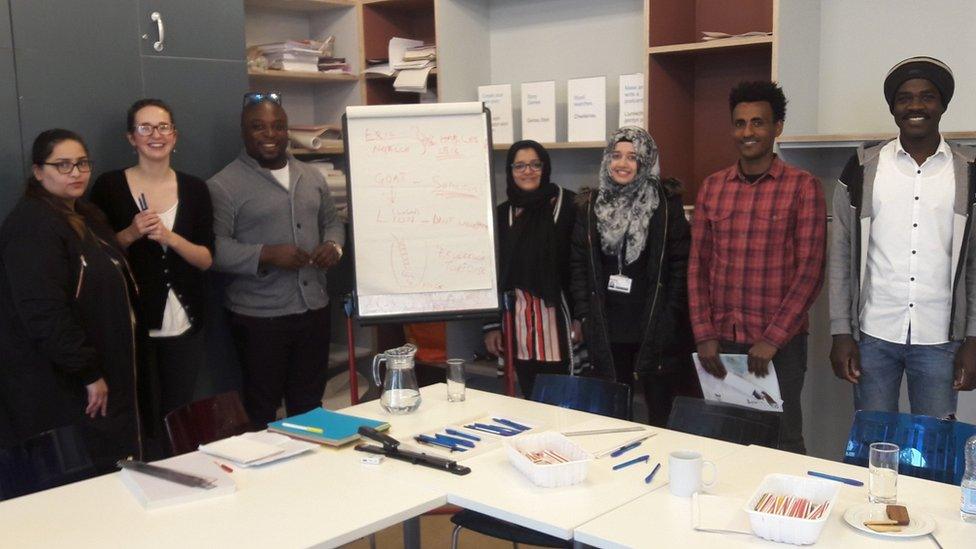Aberystwyth: Holocaust refugee meets woman who fled Syrian war
- Published
Ghofran Hamza says refugees can play a role in societies that help them, and support others
Two women who found sanctuary in Wales 72 years apart have met to learn about each other's experiences.
Renate Collins fled Prague and the Holocaust in 1939.
Ghofran Hamza left her home in Syria at the start of the civil war in 2011.
They met at the launch of an exhibition tracing the lives of refugees in Wales from the 1930s to the present day.
Both women said they felt a strong connections to Wales.
"When the war finished," Renate said. "I'd been in Wales longer than I'd been in Prague. I feel British."
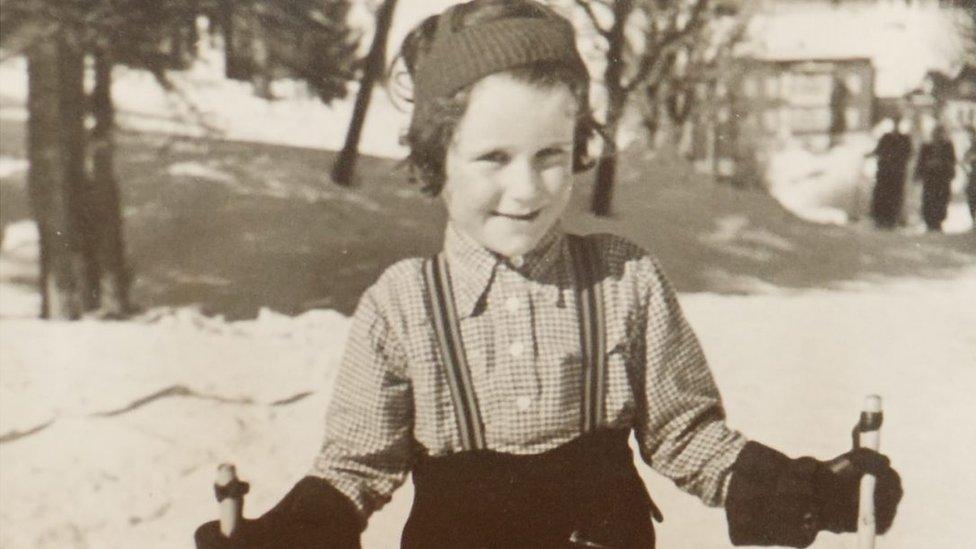
Renate was on the last refugee train out of Prague after war was declared in 1939
Ghofran agreed, saying: "I feel this is my place. I don't feel like I belong to any other country."
They both carry painful memories from the countries they left behind.
Renate was five years old when she got on the last Kindertransport out of Prague.
Unwell with chickenpox and a fever, Renate's mother did not want her to leave.
"A family friend at the station said if she doesn't get on now she'll never go," she recalled.
"Of course, she was quite right. If I hadn't gone, I wouldn't be here today."

Ghofran and her baby brother before they fled the war in Syria
Ghofran and her family fled Syria in 2011 as the tensions of civil war increased.
"Overnight [my parents] decided that we're going to leave," she said. "We packed everything and went illegally to Lebanon."
They spend the next seven years "hiding" from the authorities and violence until news came of asylum in the UK.
"I can't explain to you how we were feeling when we went to the airport," she said.
"We said we're not believing this until we are on the flight."
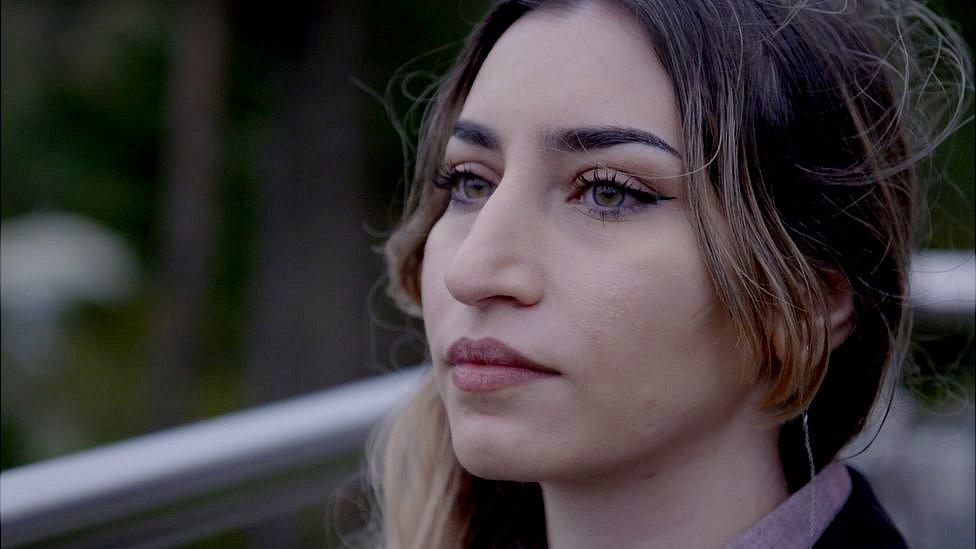
Ghofran, 23, opened her own restaurant in Aberystwyth
Both women's arrivals in Wales began with challenges, but ended in triumph.
"The only two words I knew was yes and no which are the most dangerous words because how on earth can I know when to say yes and when to say no," Renate laughed.
Life in Porth was very different to Prague. Her adoptive father was a Baptist minister in a small community.
"Not many people in the Rhondda Valley had heard about Czechoslovakia," she said.
"There were no Jewish communities. They hadn't even heard of a synagogue."
But Renate said as a child, she quickly settled in.
"When I went to school I was just one of the local children. It was absolutely amazing."
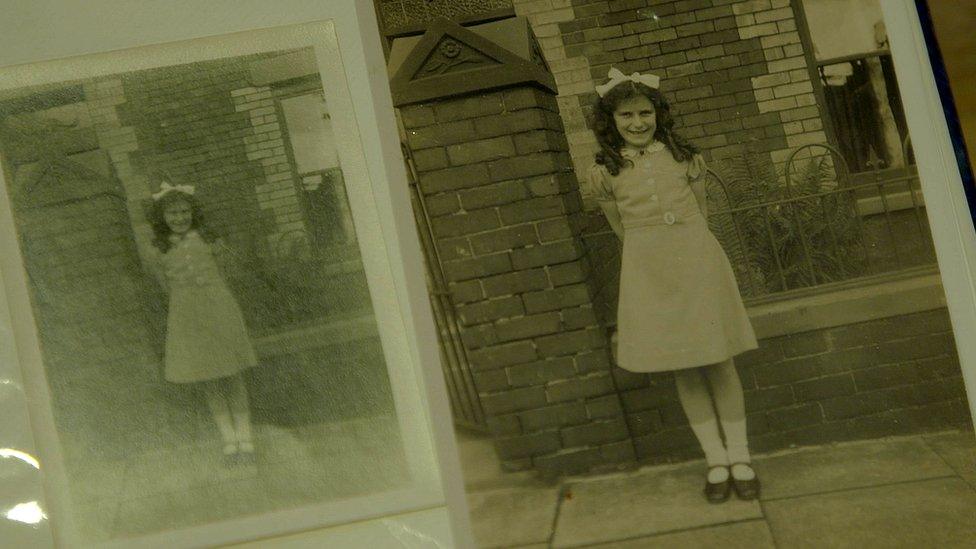
Renate says she fit in as a school girl in Wales
Ghofran had to adapt to life in Wales alongside different generations of her family.
"I believe that until now my parents were still not able to get along with the whole system here," she said.
The difference in culture and the preconceptions people had of Syrians "made it hard to cope and times", she explained.
"People view us in a different way, especially because of all the drama that goes on the news and everything they hear about my religion," she said.
"It was quite a long journey to get people to understand that people like me don't have to be dangerous'."
However Ghofran said she had always felt welcome in Wales.
''In Aberystwyth specifically I did not face any racism. People always treated us in a kind way.''
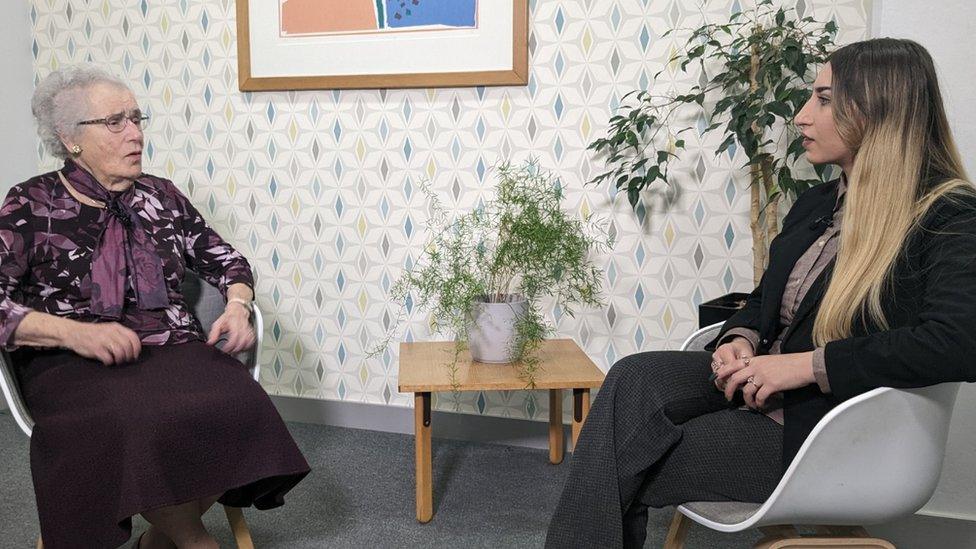
Renate came to Wales to escape the Holocaust, while Ghofran fled the civil war in Syria
Renate and Ghofran also live with their traumatic experiences.
"After the war I couldn't become a British subject," Renate said. "I had to wait two-and-a-half years before I could be adopted because I had nobody in Prague to tell me how many of the family had died."
Years later she found out she lost 64 members of her family, including her mother and father.
"I think then it sort of struck me."
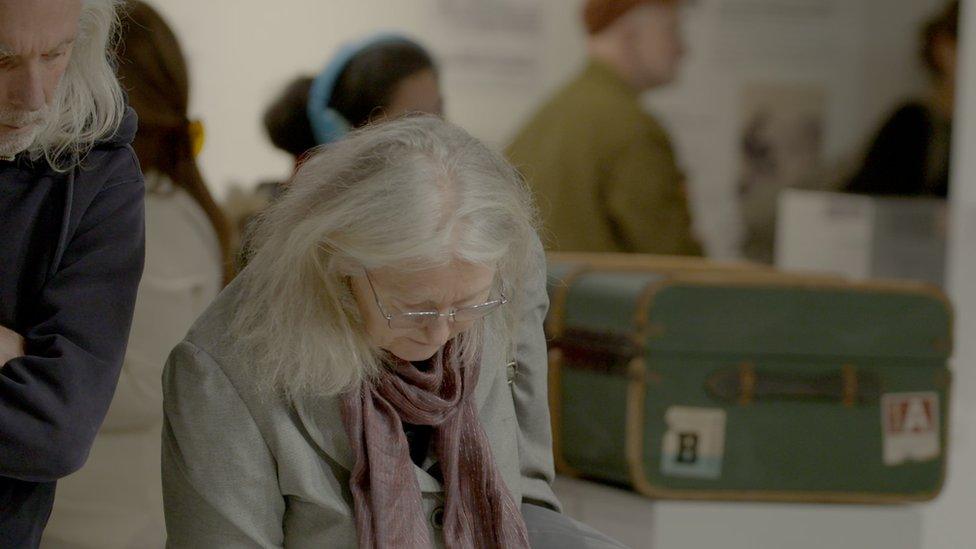
Exhibit visitors can see pictures, video and artefacts depicting refugees in Wales
Ghofran said the suffering she faced in Syria has never left her.
"I don't believe that it's my country anymore which breaks my heart. I just feel betrayed.
"People were bombed, people were tortured to death.
"Inside of me there is a trauma that takes me back to Syria or Lebanon.
"I try to forget about it or to move on but it's always in the back of my mind."
Renate sympathised with the challenges of overcoming her past.
"I've been asked thousands of times can I forgive and forget. I have to say I can forgive, but you never forget."
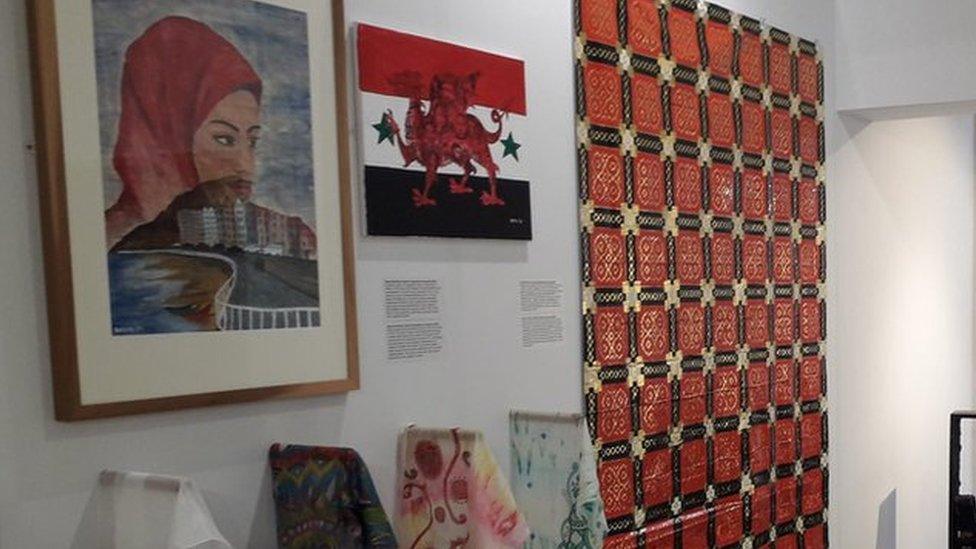
An exhibit on the Syrian experience in Wales
Renate married and moved to Newquay, Cornwall, where she now lives.
Ghofran is still studying and after years of serving Middle Eastern cuisine at local events, she recently opened her own restaurant in Aberystwyth.
"I was thinking with my mum what can we share with the community," she remembered. "We found that food is the centre point of the heart to everyone."
The project, external that brought Renate and Ghofran together is led by Andrea Hammel, director of the Centre for the Movement of People at Aberystwyth University.
"A lot of refugees made an immense contribution to Wales after coming here," she said.
"But, I would also like us to learn from the difficulties they've had.
"Refugees need to be able to be in touch with their original community but obviously they also need to integrate into Wales."
Ghofran said the exhibition shows "refugees can take part in the community, can be chefs, or can be artists".
"I think it's very important for refugees to share their experiences," she added.
"What we're sharing now might help other people who come later on."
For more, watch BBC Wales Live on BBC iPlayer.
- Published9 November 2022
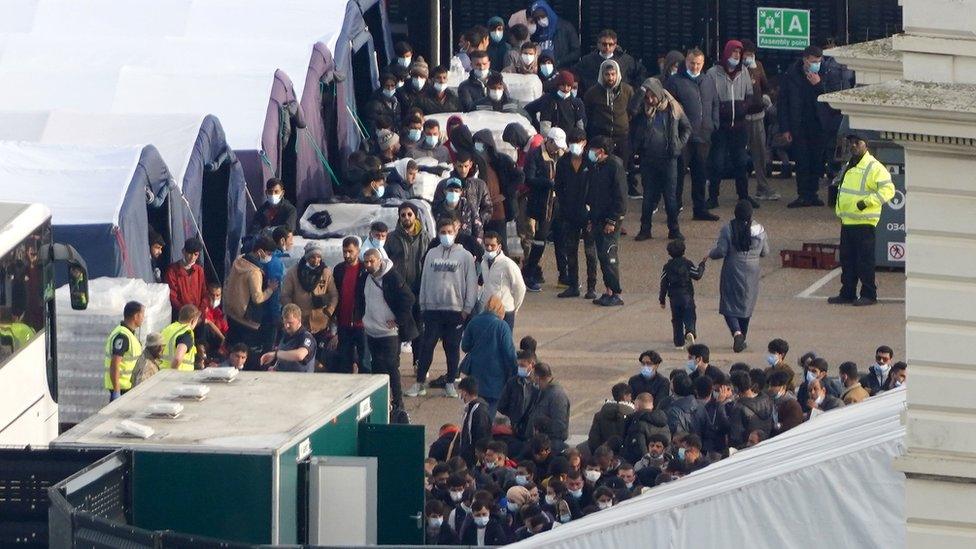
- Published17 March 2022
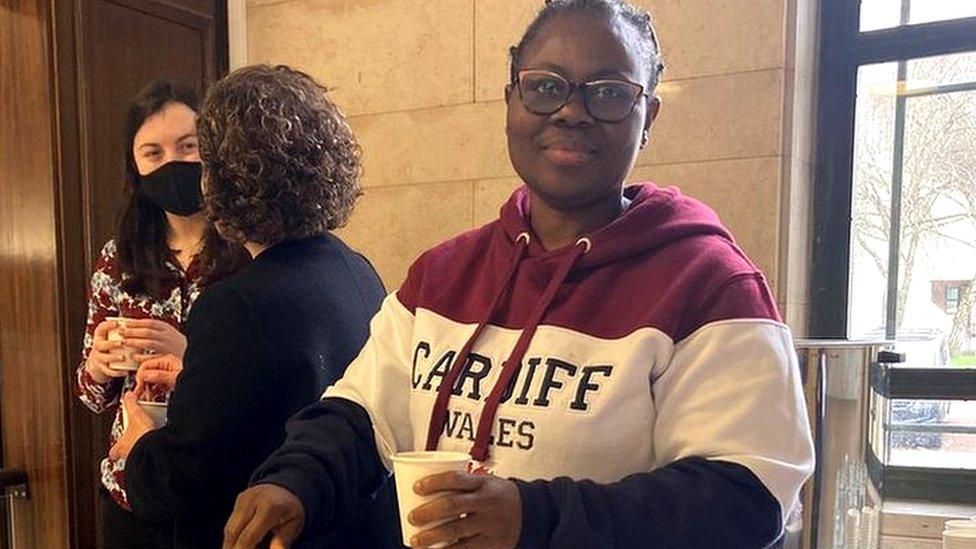
- Published10 March 2018
